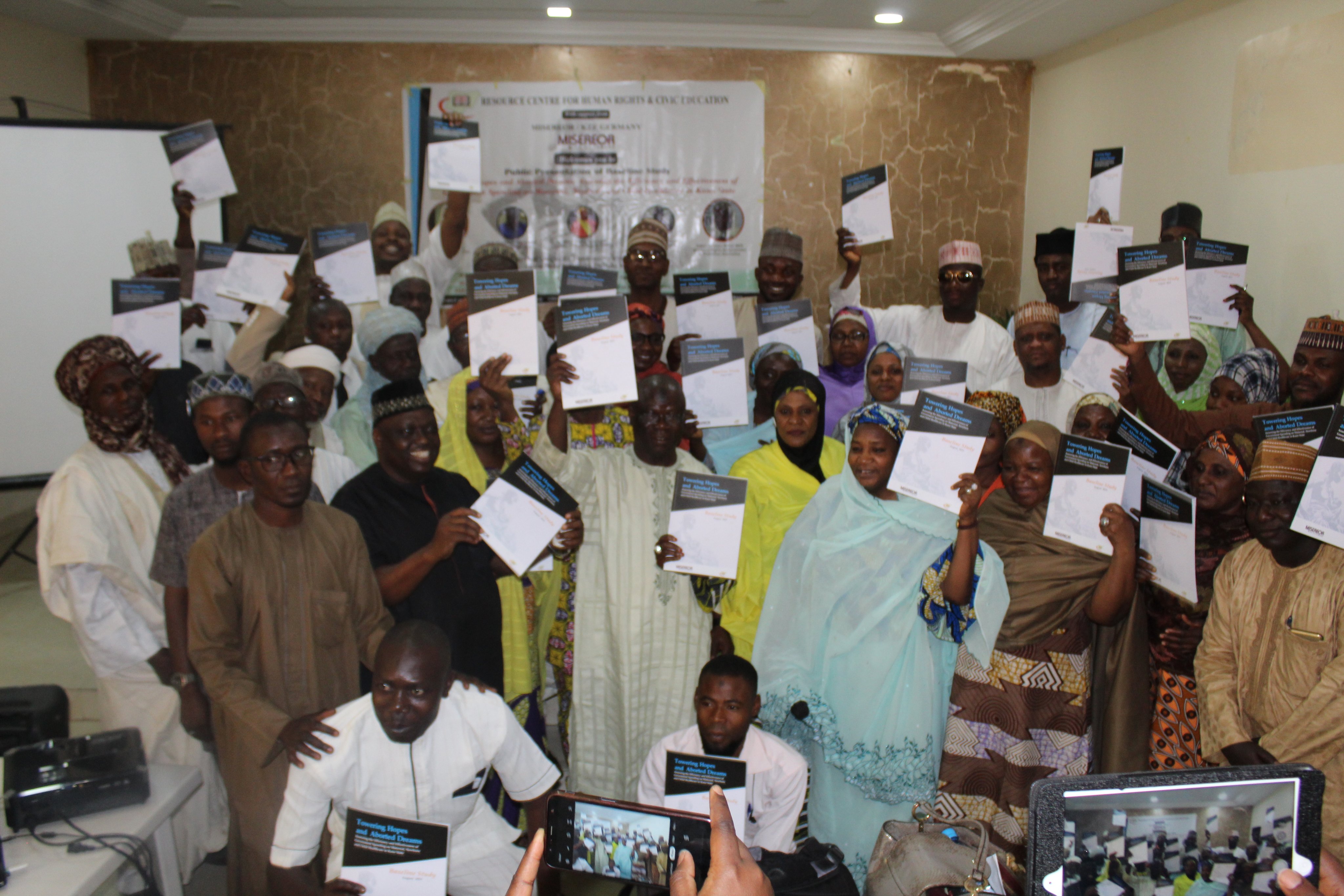CHRICED unveils study on Kano’s spending for maternal, child health
The Resource Center for Human Rights & Civic Education (CHRICED) Saturday held a public presentation of its baseline study on the efficiency and effectiveness of maternal health interventions in Kano state, titled: “Towering Hopes and Aborted Dreams: Assessing the Efficiency and Effectiveness of Government Spending on Maternal, Newborn and Child Healthcare in Kano State.”

The public presentation was chaired by Saudatu Mahdi, a leading Nigerian civil society voice cum executive secretary of the Women’s Rights Advancement and Protection Alternative (WRAPA), a nonprofit focused on advancing women’s rights including reproductive health rights. The event was keynoted by Dr Amina Salihu, a feminist and governance expert currently working as senior programme officer at MacAthur Foundation.
In her remarks, Mahdi said the delivery of quality maternal, newborn and child healthcare services was part of the fundamental right to life as enshrined in chapter 4 of Nigeria’s 1999 constitution, as amended. Consequently, she said, “within the framework of the social contract between government and the people, interrogating the efficiency and effectiveness of any component of welfare service delivery programme is legitimate. Holding government accountable for budgetary provisions and actual spending for infrastructure, facilities and personnel that add up to provide quality health is a right.”
She adds that, based on the findings of the CHRICED study, improving accountability and access to quality maternal, newborn and child healthcare services in Kano would entail “deliberate efforts to reorder priorities; and adapt prudent monetary culture” which also meant the government had to “respond to the structural and management flaws in health allocated resources in order to meet national and global goals.”
“Attaining Nigeria’s contributions to realizing the 2030 benchmark for the Sustainable Development Goals [SDGs] especially Goal 3.1 and 3.2 which are aimed at reducing the global maternal mortality ratio as well as ensuring preventable deaths of newborns and under-five children; justifies every pressure for mitigating the gaps highlighted by the CHRICED Baseline Report. The report also highlights the role being played by national NGOs, international NGOs and other multilateral donors who continue to provide substantial support within the health sector ecosystem in Kano State,” said Mahdi.
In her keynote address, Dr Salihu said findings of the CHRICED study, which was conducted in Gwale and Kumbotso Local Government Areas (LGAs) of Kano state, had shown that the major barriers for accessing maternal, newborn and child healthcare in the state were, amongst others, low health budget performance, weak accountability structures and unruly behaviors of health personnel. Others, she said, were lack of political will and corruption leading to inadequate access to and availability of lifesaving drugs for pregnant women at healthcare facilities as well as inadequate capacity of civil society organizations to analyse and track health budgets.
In addressing these myriad of challenges, she said, the civil society and government needed to collaborate with one another on the basis of facts and mutual respect to enable transformational change. “This kind of collaboration based on facts and mutual respect is a necessary way to create safe spaces for citizens and hold each other to account,” Salihu said.
In his opening address earlier on, Dr Ibrahim Zikirullahi, executive director of CHRICED, said his organization had been working with relevant stakeholders including citizens at the grassroots to address maternal deaths in Kano state, using rights-based approach to ensure maternal health accountability.
“The baseline on the efficiency and effectiveness of maternal health interventions in the state being presented today was borne out of the need to interrogate the core processes for financial flows and expenditures. The logic of the current effort is to go beyond the allocation of funds, and assess the effectiveness and efficiency of resources allocated. CHRICED’s commitment is borne out of the belief that maternal mortality is a silent killer taking a huge number of our lives. In fact, if the number of lives lost to the scourge of maternal mortality were to be lost in a war, everyone is likely to refer to it as genocide,” said Dr Zikirullahi.












